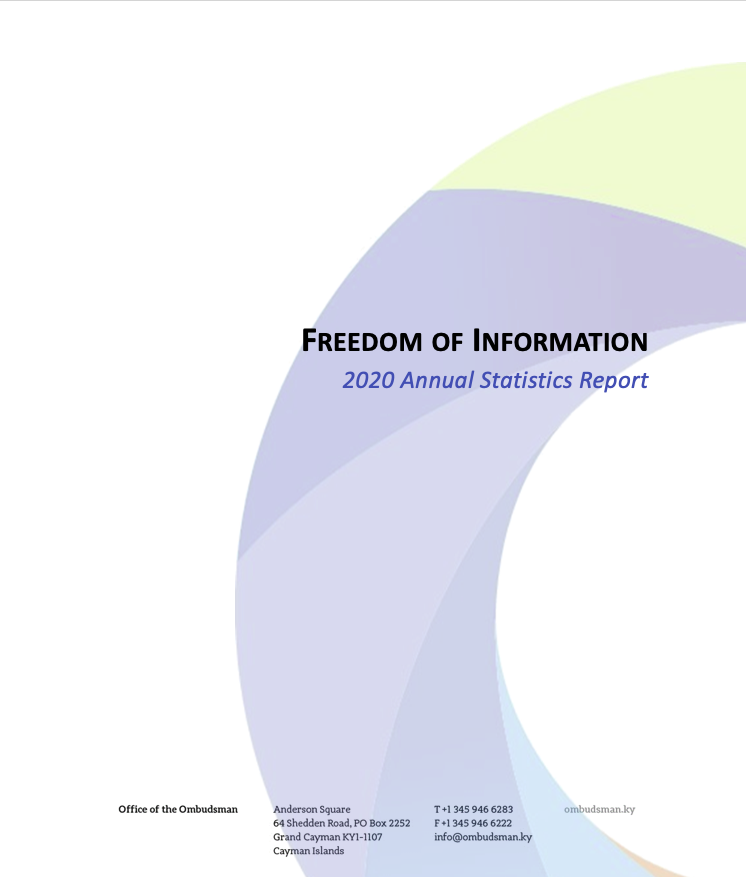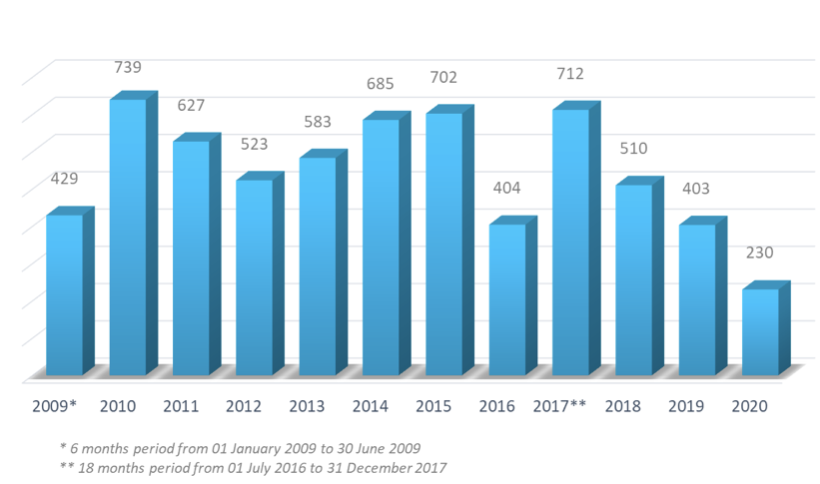Cayman: Tuesday 28 is International Right to Know Day
Ombudsman marks International Right to Know Day

FOI: It’s yours, just ask!
Since the implementation of the Freedom of Information (FOI) Act in the Cayman Islands, the government has received more than 6,500 open records requests – and has disclosed public information in roughly half of those cases.
In 2020, some of those disclosures included information on duty concessions, Labour Tribunal and Appeals Tribunal decisions, land survey files, records concerning residency and employment rights certificates for same-sex couples, exam results, the cost of John Gray High, government’s compliance with the National Pension Act, and more.
The Office of the Ombudsman believes there is reason to celebrate as we mark International Right to Know Day this Tuesday, 28 September. The FOI Act took effect in Cayman on 5 January 2009, granting individuals the legal right to request information held by public sector entities.
Since then, hundreds of FOI requests have been made each year leading to hundreds of disclosures of public records – either in full or in part. Last year as the nation grappled with the pandemic we saw the lowest number of open records requests since the Act came into effect, with 230 FOI requests made of which 61% were disclosed in full or in part.
“As time has gone on, we believe more and more government agencies are making information available to the public proactively, reducing the need for FOI requests,” said Ombudsman Sandy Hermiston. “This was one of the original goals set out in enacting right-to-know legislation more than a decade ago.”
Making an FOI request does not guarantee that the records sought will be disclosed if they fall under one of the Act’s exemptions. In just under 40% of requests made last year, exemptions were claimed or another reason was applied to deny access. In general, the FOI Act ensures that requests must receive a government response within 30 days.
“Request handling times have remained stable since last year, but many previous years saw quicker responses from the government”, said Deputy Ombudsman Jan Liebaers. “We are looking forward to improvements being made to the government’s FOI tracking system, which should give us more specific data next year”.




Introduction
The FOI Act promotes openness by creating a general right of access, balanced by exemptions
for specific reasons, consistent with the system of constitutional democracy in the Cayman
Islands.
This report provides statistics that place the 2020 figures in the context of the statistical trends
and results since the FOI Act came into effect in 2009.
Methodology
This report was compiled using aggregated statistics from the Cayman Islands Government’s
central tracking system known as JADE. Where needed, those figures have been augmented
with, and verified against, compliance reports on FOI activity received from each individual
public authority.
JADE is owned and maintained by the Cabinet Office, and we are grateful to the Information
Rights Unit of the Cabinet Office for providing many of the raw data for this report.
As in previous years, there are no reliable figures for internal reviews conducted during the year, as they are being under-reported in the tracking system. Therefore, we are unable to report on this item.
The number of appeals to the Ombudsman and their success and failure rate have already been reported in the 2020 Annual Report of the Office of the Ombudsman and have not been duplicated here.
FOI Statistics


Number of FOI requests per year (2009-2020)
The number of requests received by Government in 2020 shows the impact of the Pandemic, with only 230 requests logged, far below the average of 400-700 per year since 2009. In ten years of operation over 6,500 requests were logged in the FOI tracking system.
Spread of FOI requests across the Public Sector (2020)
As in previous years, most FOI requests were received by those public authorities whose
decisions impact individuals the greatest. Workforce Opportunities & Residency Cayman
(WORC) received the most requests (52) followed by the Royal Cayman Islands Police Service
(33) and the Ministry of Education, youth, Sports, Agriculture and Lands (10).
REQUEST HANDLING times 2009-2020


In 2020 the average time cases stayed open remained stable at 30 days. About 46% of FOI requests took longer than 30 days, compared to only 37% in 2017.
The government’s FOI tracking system (upgraded in early 2021) records when cases were closed. This includes many cases with legitimately extended timelines, or cases that were internally reviewed or appealed.
The FOI Act requires public authorities to give their initial decision to an FOI request “as soon as practicable” but not later than 30 calendar days after receiving it.


Outcomes of FOI requests (2020)
The FOI tracking system logs one or more outcomes for each request. When certain outcomes are discounted (no records found, records already in the public domain, duplicate request, or request withdrawn), the proportion of requests granted in full or in part was about 61%, which is below average. |





